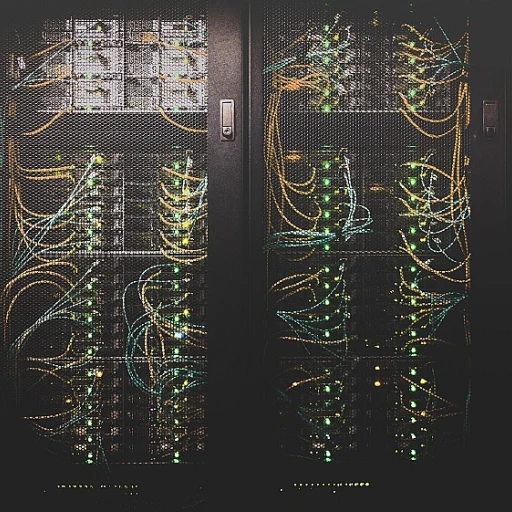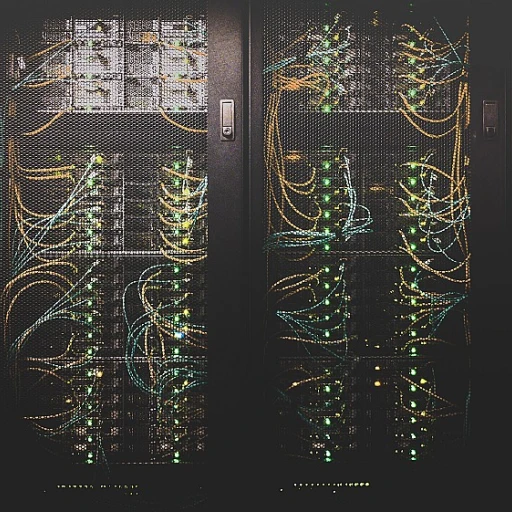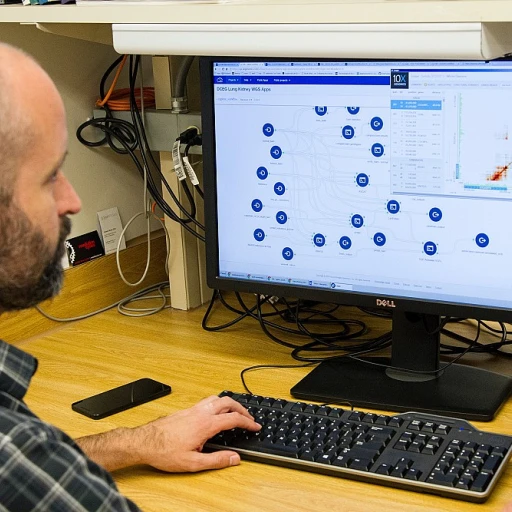
Current Trends in Logistics Software
Emerging Patterns in Logistics Software
In the rapidly evolving world of logistics, software development is playing a pivotal role in transforming how businesses manage their operations. The current trends in logistics software are driven by the need for efficiency, accuracy, and real-time data management. Companies are increasingly turning to custom logistics solutions to meet their unique needs, allowing them to streamline their supply chain and improve overall business performance.
One of the most significant trends is the integration of real-time tracking systems. These systems enable businesses to monitor their inventory and transportation logistics with unprecedented precision. By leveraging advanced data analytics, companies can optimize their fleet management and warehouse operations, ensuring that goods are delivered on time and inventory levels are maintained efficiently.
Another trend is the shift towards cloud-based management software. This approach offers scalability and flexibility, allowing businesses to adapt quickly to changing market demands. Cloud solutions also facilitate seamless collaboration across different departments and locations, enhancing the overall efficiency of logistics management systems.
Furthermore, the demand for custom software development is on the rise. Businesses are seeking tailored solutions that align with their specific operational requirements. Custom logistics software can address unique challenges and provide a competitive edge in the market. This trend underscores the importance of partnering with a reliable development company that can deliver innovative and effective software solutions.
As the logistics industry continues to evolve, these trends highlight the critical role of software development in shaping the future of supply chain management. For more insights into how these innovations are influencing software development, explore the potential of value hypothesis in software development.
Challenges in Developing Logistics Software
Overcoming Barriers in Logistics Software Development
Developing logistics software is no small feat. Companies face numerous challenges as they strive to create efficient and effective solutions for the ever-evolving logistics industry. These challenges can impact the overall success of logistics management systems, affecting everything from transportation logistics to inventory management.
Integration Complexities
One of the primary challenges is the integration of new software with existing systems. Many businesses rely on legacy systems that are not easily compatible with modern software solutions. This can lead to significant delays and increased costs in software development projects. Custom logistics software must be designed to seamlessly integrate with current management systems to ensure smooth operations.
Data Management and Security
Data is at the heart of logistics operations, and managing it effectively is crucial. The sheer volume of data generated by logistics activities can be overwhelming. Ensuring data accuracy and security is a significant challenge for development companies. Implementing robust data management strategies and secure systems is essential for protecting sensitive business information.
Real-Time Tracking and Visibility
Real-time tracking is a critical component of modern logistics management. However, achieving accurate and timely tracking can be difficult. Logistics software must be capable of providing real-time data to enable businesses to make informed decisions quickly. This requires sophisticated app development and advanced tracking technologies.
Customization and Scalability
Every business has unique needs, and off-the-shelf solutions often fall short. Custom software development is necessary to address specific requirements, but it can be challenging to create software that is both customizable and scalable. Development services must focus on building flexible solutions that can grow with the company.
Adapting to Technological Advances
The rapid pace of technological advancement presents another challenge. Development companies must stay ahead of trends to ensure their software remains relevant. This includes incorporating innovations in AI, machine learning, and IoT, which are discussed in other sections of this article. For more insights on how networking tools are evolving in software development, you can explore this resource.
The Role of AI and Machine Learning
The Transformative Power of AI and Machine Learning in Logistics
Artificial Intelligence (AI) and Machine Learning (ML) are revolutionizing the landscape of logistics software development. These technologies are not just buzzwords; they are pivotal in enhancing the efficiency and accuracy of logistics management systems. By integrating AI and ML, companies can significantly improve their logistics operations, from inventory management to transportation logistics.
One of the primary benefits of AI in logistics software is its ability to process vast amounts of data in real time. This capability allows businesses to optimize their supply chain operations by predicting demand, managing inventory levels, and reducing transportation costs. For instance, AI-driven software solutions can analyze historical data to forecast future trends, enabling companies to make informed decisions about their logistics strategies.
Enhancing Efficiency with AI-Driven Solutions
AI and ML also play a crucial role in enhancing the efficiency of logistics management software. By automating routine tasks, such as order processing and shipment tracking, AI-powered systems free up valuable time for logistics professionals to focus on more strategic initiatives. This automation not only improves operational efficiency but also reduces the likelihood of human error, leading to more accurate and reliable logistics services.
Moreover, AI and ML enable the development of custom logistics solutions tailored to the specific needs of a business. Whether it's a transportation software app designed to optimize fleet management or a warehouse management system that streamlines inventory tracking, AI-driven solutions offer unparalleled flexibility and scalability. This customization is particularly beneficial for businesses with unique logistics requirements, as it allows them to implement systems that align with their operational goals.
Real-Time Data and Predictive Analytics
Another significant advantage of AI and ML in logistics software development is their ability to provide real-time data and predictive analytics. These technologies empower companies to monitor their logistics operations in real time, enabling them to respond quickly to any disruptions or changes in demand. Predictive analytics, on the other hand, allows businesses to anticipate potential challenges and proactively address them, ensuring a seamless supply chain experience.
In conclusion, the integration of AI and ML in logistics software development is not just a trend; it's a necessity for businesses looking to stay competitive in today's fast-paced market. By leveraging these technologies, companies can enhance their logistics management systems, improve operational efficiency, and ultimately drive business success.
Impact of IoT on Logistics Software
Integrating IoT for Enhanced Logistics Efficiency
The Internet of Things (IoT) is revolutionizing logistics software by enabling real-time tracking and data collection, which are crucial for effective supply chain management. IoT devices, such as sensors and GPS trackers, provide businesses with the ability to monitor transportation logistics and inventory management with unprecedented accuracy. This integration allows for more efficient fleet management and warehouse management, ensuring that logistics operations run smoothly.
One of the key benefits of IoT in logistics is the ability to collect and analyze data in real time. This data-driven approach allows companies to optimize their logistics management systems, reducing delays and improving overall efficiency. By leveraging IoT technology, businesses can implement custom logistics solutions that cater to their specific needs, enhancing both operational efficiency and customer satisfaction.
Moreover, IoT plays a significant role in improving the sustainability of logistics software development. By providing detailed insights into energy consumption and resource utilization, IoT-enabled systems help companies minimize waste and reduce their carbon footprint. This aligns with the growing demand for sustainable practices in logistics software development, as discussed in other sections of this article.
As IoT technology continues to evolve, its impact on logistics software will only grow. Companies that embrace IoT solutions will be better positioned to adapt to the ever-changing landscape of supply chain management, ensuring they remain competitive in the market. The integration of IoT in logistics software development is not just a trend; it is a fundamental shift towards more efficient and sustainable logistics operations.
Sustainability in Logistics Software Development
Embracing Green Technologies
In the realm of logistics software development, sustainability is becoming a cornerstone. As businesses increasingly prioritize eco-friendly practices, software solutions are evolving to support these initiatives. This shift is not just about reducing carbon footprints; it's about creating efficient systems that optimize resource use and minimize waste.
Optimizing Resource Management
Logistics management software now integrates advanced features that help companies track and manage their resources more effectively. By leveraging real-time data, businesses can streamline their operations, reducing unnecessary transportation and inventory costs. This not only saves money but also contributes to a more sustainable supply chain.
Developing Eco-Conscious Software Solutions
Custom logistics software development is focusing on creating solutions that align with sustainability goals. Development companies are designing systems that enhance fleet management and warehouse management, ensuring that every aspect of the supply chain is as efficient as possible. This includes optimizing routes for transportation logistics to reduce fuel consumption and emissions.
Integrating Sustainable Practices in Operations
As logistics software continues to evolve, integrating sustainable practices into daily operations becomes crucial. Businesses are adopting management systems that support green initiatives, such as reducing paper usage through digital tracking and inventory management systems. These innovations not only support environmental goals but also improve overall business efficiency.
Future of Sustainable Logistics Software
Looking ahead, the development of logistics software will likely continue to prioritize sustainability. As companies seek to enhance their environmental responsibility, software solutions will play a pivotal role in achieving these objectives. The focus will be on creating systems that not only support business operations but also contribute positively to the environment.
Future Prospects for Logistics Software
Emerging Technologies and Their Influence
As we look to the future of logistics software, emerging technologies are set to play a pivotal role in shaping the landscape. The integration of artificial intelligence and machine learning will continue to evolve, providing more sophisticated solutions for logistics management. These technologies enable real-time data analysis, enhancing decision-making processes and optimizing supply chain operations.
Customization and Flexibility
Businesses are increasingly seeking custom logistics software tailored to their specific needs. This demand for customization is driving software development companies to offer more flexible solutions. Custom software development allows businesses to address unique challenges, whether it’s in inventory management, fleet management, or warehouse management. As a result, logistics software is becoming more adaptable, catering to the diverse requirements of different industries.
Integration of IoT and Real-Time Tracking
The impact of IoT on logistics software cannot be overstated. IoT devices provide real-time tracking capabilities, offering unprecedented visibility into transportation logistics and supply chain management. This level of transparency is crucial for businesses aiming to improve efficiency and reduce operational costs. As IoT technology advances, we can expect even more seamless integration with logistics management systems.
Sustainability and Green Logistics
Sustainability is becoming a key focus in logistics software development. Companies are increasingly aware of their environmental impact and are seeking solutions that promote green logistics. This includes optimizing transportation routes to reduce emissions and implementing energy-efficient practices in warehouse management. As sustainability becomes a priority, logistics software will need to incorporate features that support eco-friendly operations.
Future Prospects and Business Opportunities
The future of logistics software is bright, with numerous opportunities for innovation and growth. As businesses continue to expand globally, the demand for efficient logistics management software will only increase. Companies that invest in advanced software solutions and embrace new technologies will be well-positioned to thrive in this dynamic industry. The ongoing development of logistics software promises to enhance supply chain efficiency, improve customer satisfaction, and drive business success.













